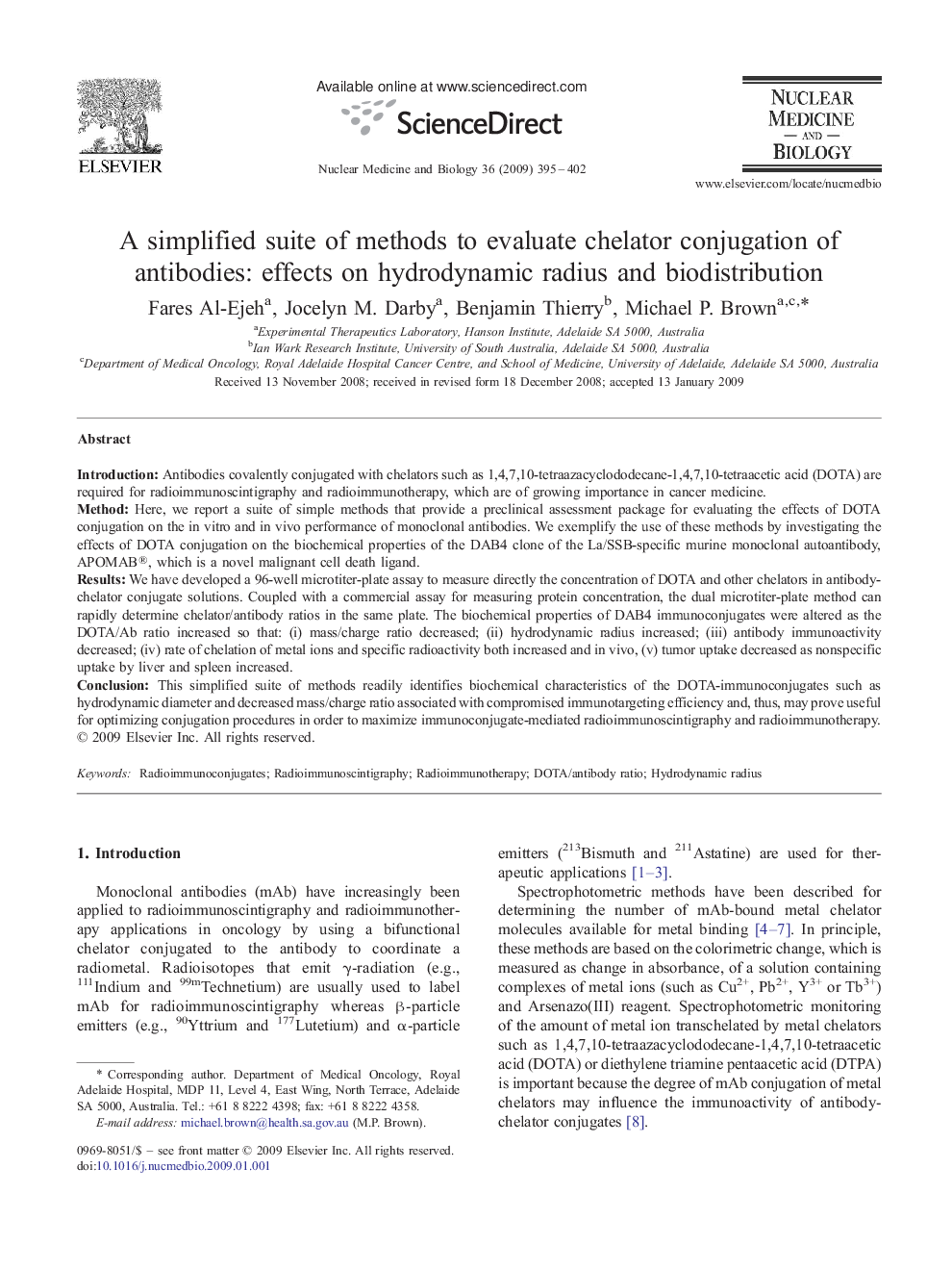| Article ID | Journal | Published Year | Pages | File Type |
|---|---|---|---|---|
| 2154164 | Nuclear Medicine and Biology | 2009 | 8 Pages |
IntroductionAntibodies covalently conjugated with chelators such as 1,4,7,10-tetraazacyclododecane-1,4,7,10-tetraacetic acid (DOTA) are required for radioimmunoscintigraphy and radioimmunotherapy, which are of growing importance in cancer medicine.MethodHere, we report a suite of simple methods that provide a preclinical assessment package for evaluating the effects of DOTA conjugation on the in vitro and in vivo performance of monoclonal antibodies. We exemplify the use of these methods by investigating the effects of DOTA conjugation on the biochemical properties of the DAB4 clone of the La/SSB-specific murine monoclonal autoantibody, APOMAB®, which is a novel malignant cell death ligand.ResultsWe have developed a 96-well microtiter-plate assay to measure directly the concentration of DOTA and other chelators in antibody-chelator conjugate solutions. Coupled with a commercial assay for measuring protein concentration, the dual microtiter-plate method can rapidly determine chelator/antibody ratios in the same plate. The biochemical properties of DAB4 immunoconjugates were altered as the DOTA/Ab ratio increased so that: (i) mass/charge ratio decreased; (ii) hydrodynamic radius increased; (iii) antibody immunoactivity decreased; (iv) rate of chelation of metal ions and specific radioactivity both increased and in vivo, (v) tumor uptake decreased as nonspecific uptake by liver and spleen increased.ConclusionThis simplified suite of methods readily identifies biochemical characteristics of the DOTA-immunoconjugates such as hydrodynamic diameter and decreased mass/charge ratio associated with compromised immunotargeting efficiency and, thus, may prove useful for optimizing conjugation procedures in order to maximize immunoconjugate-mediated radioimmunoscintigraphy and radioimmunotherapy.
